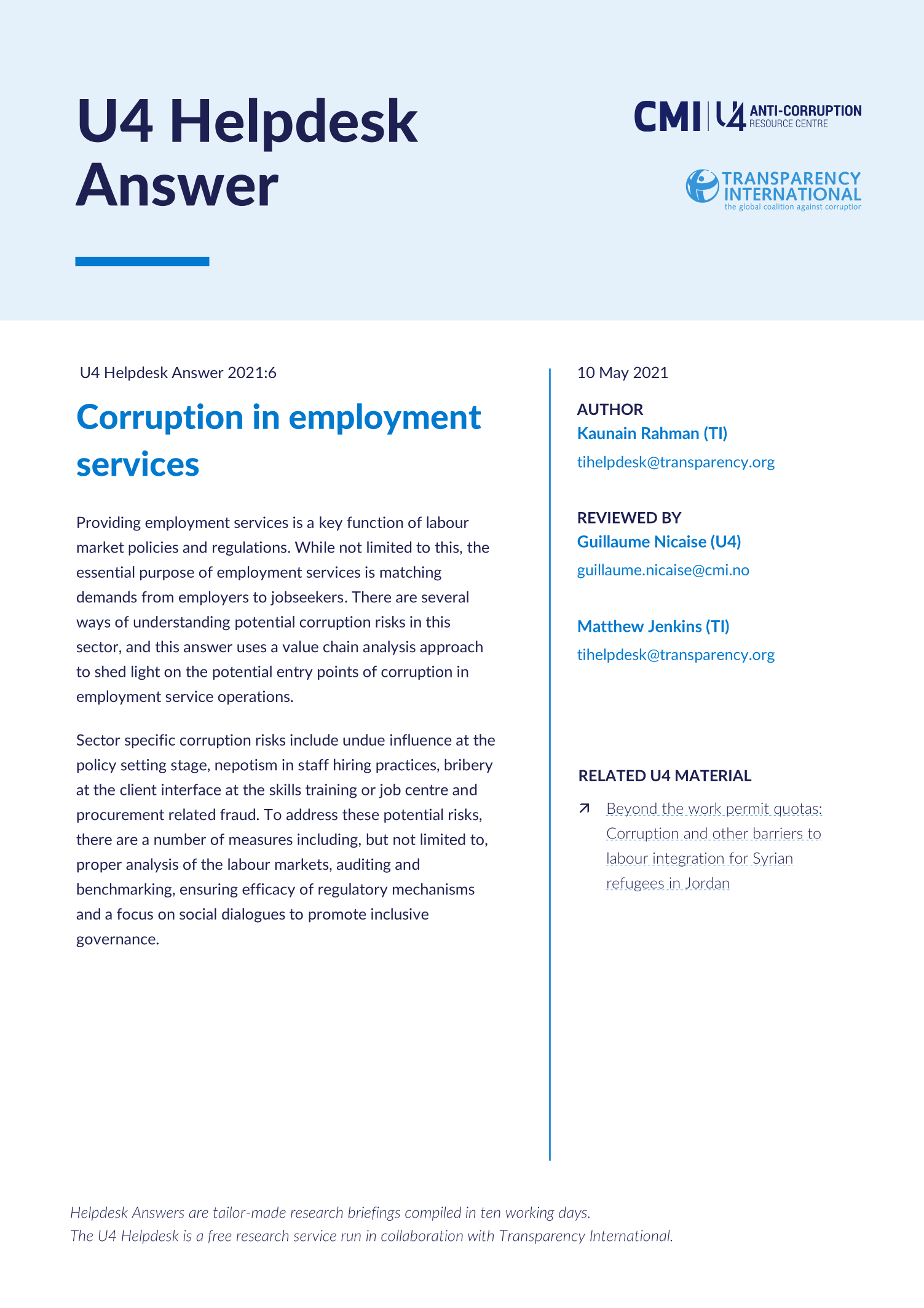Main points
- Corruption risks faced by employment agencies are closely related to the background conditions in which they operate.
- Measures aimed at reducing long-term unemployment can be rendered ineffective by weak administrative capacity and poor governance, both of which are hallmarks of economies with a high incidence of corruption.
- Specific corruption risks may occur at different points of the employment services value chain. For example, undue influence in policy setting, nepotism in hiring and bribery at the client interface.
- Potential mitigation measures include thorough contextual analysis, social dialogue, due diligence and performance management.

